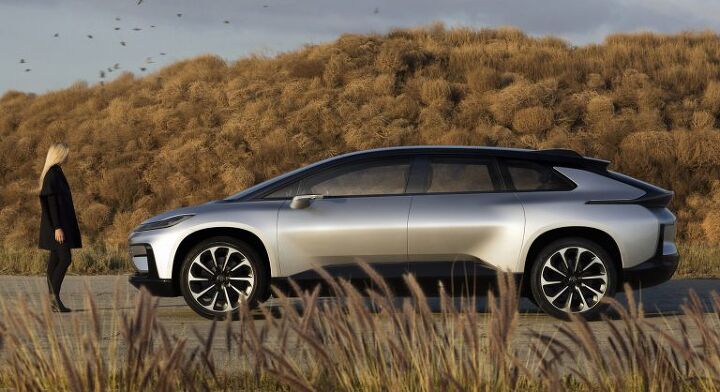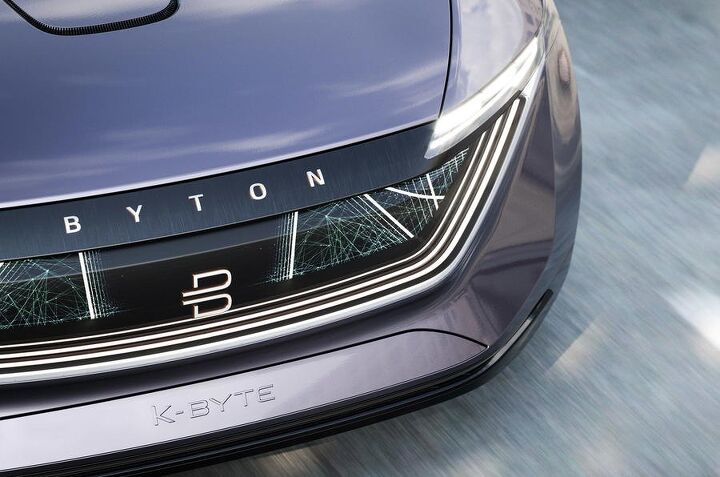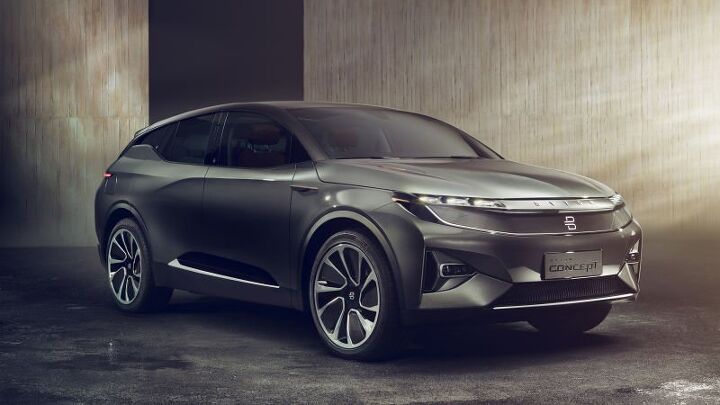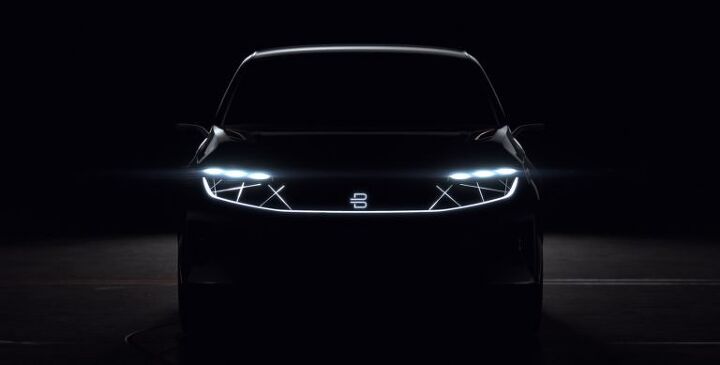#byton
Faraday Future Returns, Discusses Going Public With Reverse Merger
Faraday Future is hoping to go public through a reverse merger, proving that the finances associated with electric vehicle startups rarely operate within the confines of reality. Founded by Chinese businessman Jia Yueting in April 2014, the company began making waves the following year when it announced a plan to invest over $1 billion a factory in Nevada (its first) and went on a massive hiring spree. With the help of millions in government tax incentives, the plan was to start building some of the world’s most advanced EVs by 2017.
But people were becoming suspicious as early as 2016, when questions were raised about where the money was coming from and how much was left. By year’s end, work on Faraday’s Nevada facility had been suspended indefinitely. Following a lightly-botched presentation of its future product in early 2017, more outlets began to report the company was quickly running out of money as it backed out of several more projects. Months later, an internal power struggle left founder Jia Yueting as the primary decision-maker. Faraday Future spent the next few years scrambling to repay its debts and scrounging for (mostly Chinese) investors that might get it closer to its ultimate goal of building cars.
Plug Pulled: Byton Suspends Production, Plans Reorganization
Chinese electric car startup Byton will reportedly idle production next month as it attempts to reorganize itself. While the coronavirus emerged as a villain in this play, the issues confronting Byton actually seem pretty dire. The company isn’t just idling factories to address a health crisis, it’s shutting things down for six months while it engages in more fundraising and tries to pay what’s owed to employees.
That’ll be tough with no normal income. Byton has already furloughed a large portion of its staff in California and plans to cease all production in Nanjing. While we knew the PRC’s approach to electrification would ultimately result in countless EV startups going under, we didn’t expect Byton to be among them. Slick products, good marketing, and interesting designs made it seem like it could go the distance — now it seems wholly preoccupied with survival.
How Can Byton Possibly Sell Its 'Driver Tablet' In America?
Chinese automaker Byton wowed the world when it introduced a concept vehicle playing host to more interior screen space than seemed wise. Both the K and M-Byte Concepts carried this trend through the past year by including a small interactive display inside the steering wheel.
At the time, we attributed the design as a fantastical inclusion meant to build hype for the burgeoning brand. But new details have emerged, indicating Byton wants to keep the concept interior all the way to assembly. According to CarScoops, a recent teaser image shows what’s rumored to be the production interior of the M-Byte, which makes its debut at the upcoming Consumer Electronics Show (CES). The manufacturer calls it the “world’s most intuitive automotive interface.”
Sink or Swim: What Kind of Automotive Startup Will Byton Be?
After showcasing its first concept vehicle at CES 2018, electric car startup Byton has come back with another for CES Asia. On Monday, the company also announced it had recently raised more than half a billion dollars in capital.
Byton looks to be on the right path, but the trail it’s marching down has already been taken by other EV startups and resulted in failure. For example, Faraday Future drove itself into a brick wall after failing to deliver on its promises for two years straight. It suffered development delays on its prototype, engaged in some sketchy deals, and practically collapsed when its main Chinese backer ran out of money. That isn’t to presume Byton is the same kind of company, but it’s offering the same type of car under vaguely similar circumstances.
Loaded with tech, Byton’s autonomous, all-electric K-Byte sedan and its SUV sibling (the M-Byte) are right in line with every manufacturers’ future vehicle concepts. They’re perpetually connected to the web, capable of self-driving, and chock full of touchscreens. But they aren’t real cars yet, even though the startup suggests they’ll be available for just $45,000 — and relatively soon. The SUV will apparently go into production in 2019, with the sedan following by 2021.
Place Your Bets: Another Chinese-backed Startup 'Ready' to Challenge Tesla
On Sunday at CES, Chinese-backed car startup Byton officially unveiled its first drivable prototype. The all-electric crossover, dubbed the SIV, arrived with its dashboard-encompassing touchscreen intact. Byton says the car will be available near the end of 2019 with the 49-inch “shared-experience” display, touchscreen steering wheel, Amazon’s Alexa, and Level 3 autonomy.
Despite a demo video featuring some cringe-worthy acting, Byton’s unveiling went off without a hitch. The company even released footage of the SIV putting around a parking lot a day early to prove that it had, in fact, build a functional prototype. But it’s promising quite a bit on a relatively narrow timeline, and we’ve seen how poorly that can play out for a Chinese-backed EV startup.
Chinese Startup Byton Teases Electric 'SIV' Ahead of CES Debut
Even though automotive trade shows are becoming more tech-focused, its still a difficult environment for a fledgling carmaker to break into. That’s one reason the Consumer Electronics Show, now just called “CES,” has hosted so many Chinese startups these last few years. One of the newest is the e-car manufacturer Byton, formerly known as Future Mobility.
While Byton sounds more like the name of a vehicle than a brand — especially since it was, two months earlier — it’s infinitely better than mashing two of the auto industry’s most-popular buzzwords together and pretending it means something. The company was also wise to get away from any moniker that might allow the public to confuse it with Faraday Future.
However, adopting the name of its singular model means Byton had to come up with something new for the vehicle scheduled to make its world debut at CES next week. Now dubbed the SIV (smart intuitive vehicle), the Chinese-brand is promising a “next generation smart device” that is “uniquely built for the coming era of truly shared, smart mobility and autonomous driving.”





















Recent Comments